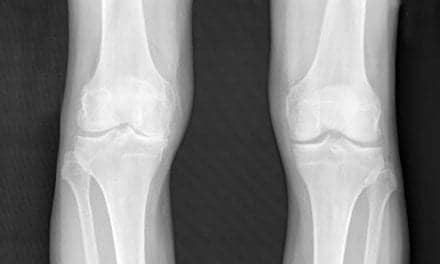A team of researchers from the University of Southampton is developing a new type of drug that they suggest may help bones heal faster and better.
According to the researchers in a media release from the University of Southampton, the drug—a protein that activates a molecular pathway called the “Wnt” pathway—causes stem cells found within bones to divide and to turn into more bone cells.
The Wnt pathway is found throughout the animal kingdom—from sponges to humans—and it plays a fundamental role in animal development and disease. It is involved in controlling the growth of stem cells, which are “master cells” that help restore tissues after injury.
One example of this is in amphibians like salamanders. If these animals lose a leg, they can just regrow a new one, the release explains.
“Through our research, we are trying to find ways to chemically stimulate Wnt signaling using drugs. To achieve this, we selectively deliver proteins and other molecules that change Wnt signaling specifically to stem cells, particularly in the bone,” explains Nick Evans, PhD, associate professor in bioengineering at the University of Southampton and the study’s lead author, in the release.
“This may help us find cures for many diseases, including bone disease, and speed up bone healing after fracture,” he adds.
However, the researchers found that if the Wnt pathway was switched on too long, the regenerative effect was lost or, even reversed, according to the release.
“This is why it is particularly important to develop technologies for timed and targeted delivery, which is what we have done in this research,” Nick adds.
The study was published recently in the journal Stem Cells.
[Source(s): University of Southampton, EurekAlert]






